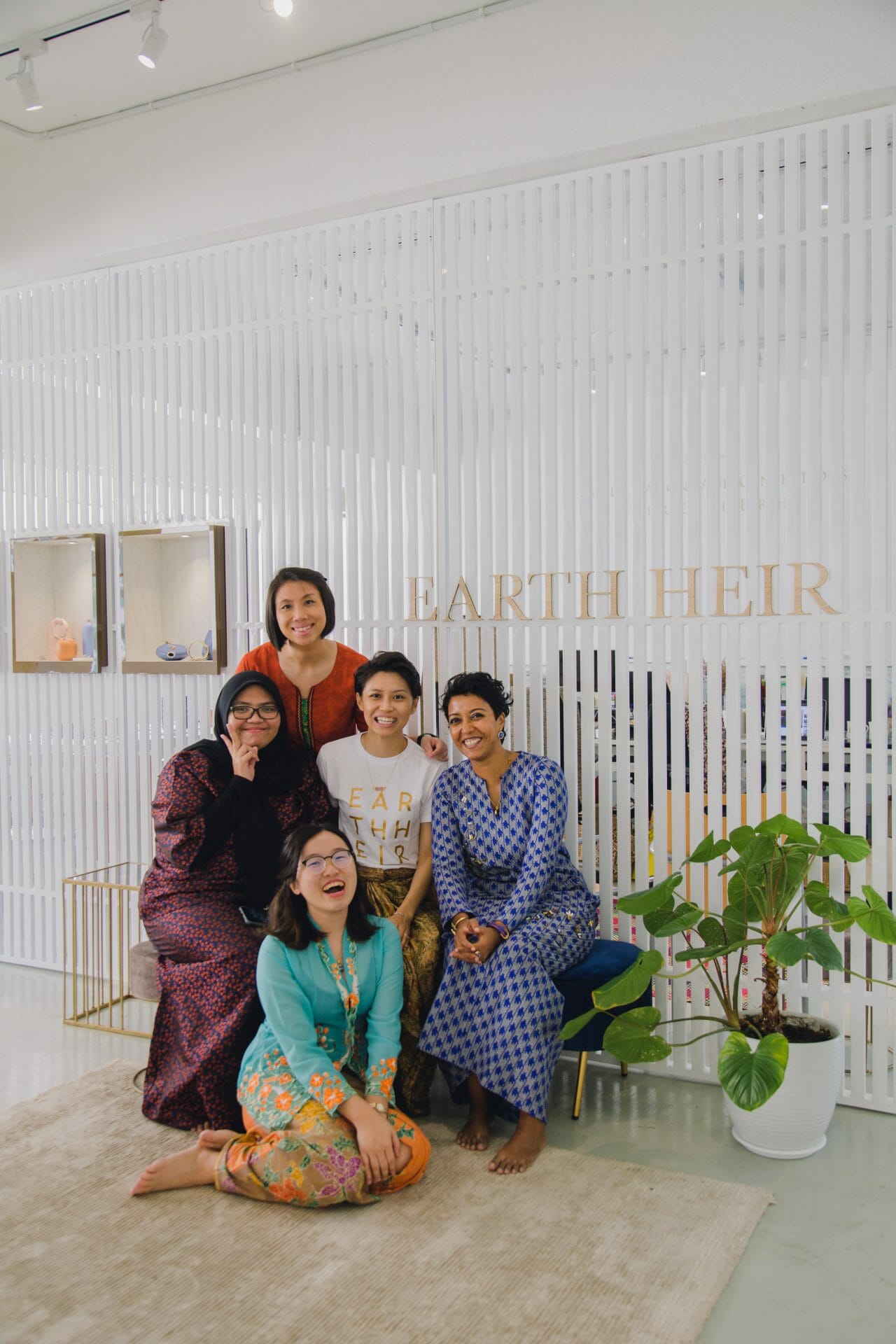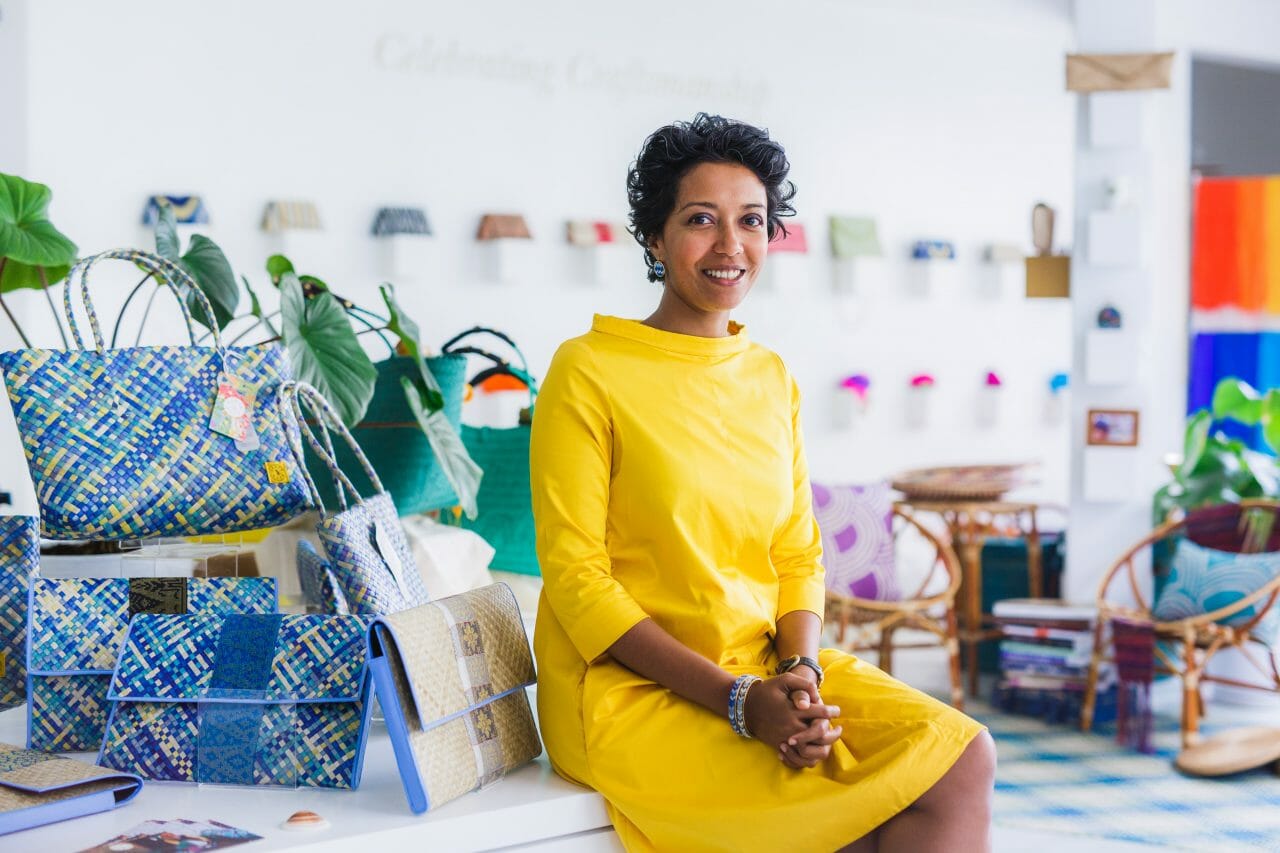BusinessToday speaks to Earth Heir on changing mindsets as a social enterprise and creating social impact along the way.
Founded in 2013, Earth Heir began with an aim to appreciate craftsmanship and artisans across the country. The social enterprise has since then impacted more than 100 artisans’ lives, offering them the opportunity to present their craft to the world and at the same time, raise awareness and change mindsets.
“When I first started, the only other social enterprises at the time were Batik Boutique and Biji-Biji Initiative. Back then people didn’t know who or what we were. They treated us with suspicion,” says Sasibai Kimis, founder of social enterprise, Earth Heir.
“People often asked how do we make money by helping people. They thought social enterprises were exploiting those working with them. It’s actually the complete opposite,” Kimis tells BusinessToday.
That was not the only challenge Kimis faced. When Earth Heir started working with artisans to produce products, then came potential customers who questioned the pricing, claiming it was ‘too expensive’ for products made in kampungs.
“We had to explain the breakdown of the cost and how it relates to fair wage. An artisan takes 2 weeks to weave a bag out of mengkuang leaves, which by the way takes months to grow. We won’t even think of negotiating when we enter Isetan for instance so why do we do the same with artisan-made products,” says Kimis.
While she believes there are still mindsets to change, Malaysians are definitely more aware about the issues she has since brought to attention through Earth Heir. “Our clientele has also become more appreciative.”
Changing mindsets nationwide
While social enterprises nationwide worked alongside refugees and Malaysians alike during the Movement Control Order(MCO) period to sew PPE suits, xenophobia and racism were on the rise in the country, particularly on social media.
The outbreak in the country had turned sentiments against foreigners, with many accusing them of spreading the disease and “stealing” jobs away from Malaysians. The government had also carried out raids which saw at least 2,000 foreigners arrested.
“We are not just selling bags and handicrafts, we are changing mindsets. We want to raise awareness on ethical fashion and at the same time on refugees in the country. The refugees we worked with made the PPEs that saved the lives of Malaysians. Do we really have to be so hostile towards them?” Kimis asked.
Earth Heir is working with refugee artisans from Syria, Afghanistan, Iran and Myanmmar living in Malaysia to introduce new authentic products and techniques to the marketplace.
The social enterprise is also aiming to raise awareness on ethical fashion. “If the general public doesn’t know why ethical fashion matters, then we won’t be able to grow up. In addition to growing the business, we have to impact and grow the ecosystem we are in,” Kimis highlights.
“It’s vital for us to think of materials the product we buy are made from and what happens to the product at the end of its lifespan. I think it’s quite important,” she says.
Earth Heir have also set out to train artisans nationwide in order for them be able to stand on their own two feet. “We have trained them on what is good quality and how to market their products so they too can build their own channel as their main income. That’s what I think our role as a social enterprise really is,” says Kimis.
Covid-19 and the need for tax exemptions
“We were supposed to be in Dubai this year, in November and we had big orders for APEC. That didn’t happen along with other plans we had for Earth Heir,” Kimis tells BusinessToday. The social enterprise also often hosted MBA students interested to learn more about the work Earth Heir is involved in.
Both Kimis and Earth Heir’s chief executive officer, Xiao Cheng Wong had also planned workshops and artisan visits, however along with other cancelled plans, those too were scrapped.
“However, I think this year has been more positive than I thought it would be. It all started with the PPE making, we actually made a huge income for the refugees we worked with. This allowed us to sustain through the period,” Kimis says.

In addition to helping social enterprises nationwide, the Ministry of Science, Technology and Innovation (MOSTI) recently launched a RM10 million matching grant.
“The grant aims to support local social enterprises and social impact businesses to sustain their initiatives and programmes, harness their capability to fundraise and increase public awareness social innovation,” said Khairy Jamaluddin during the launch.
Xiao says while the grant had proved to be beneficial for the social enterprise during this time, they are hoping for tax exemptions and a formal recognition which could prove to be helpful in the long run.
The social enterprise had only recently received validation from the World Fair Trade Organisation (WFTO) which Kimis says would help a long way to gain confidence from more Malaysians.
“What we are really trying to get the government to do is give tax exemptions for the entity itself because now it’s only for the donors. We are creating social impact to help the government solve issues and we are doing it in a more sustainable manner hence the tax exemption would help alleviate some of our burden,” Xiao says.
While donors are able to get tax exemptions, the chief executive officer says this creates an impression that social enterprises rely on donations.
“For me, I think the tax exemptions would be very helpful but to get there, there also needs to be more awareness on the government level. I think it will take time, even if we get a reduced tax rate, it will alleviate the burden on social enterprises and help us to focus better on helping communities,” Kimis concludes.










